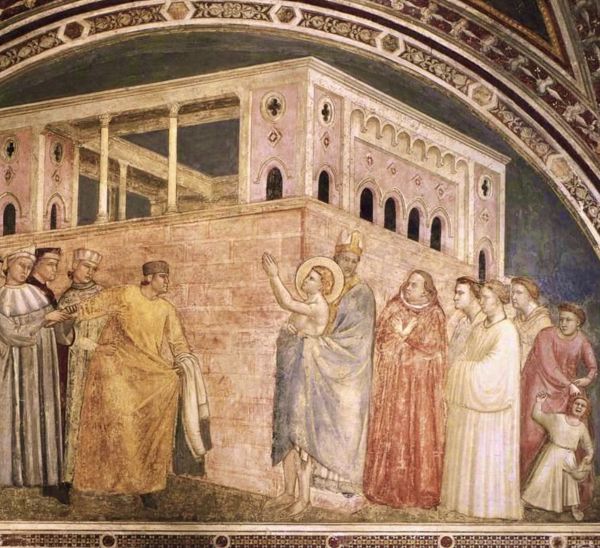The Liturgy focuses on the passage from Luke in which Jesus sets out the conditions for following Him in His call to mission for the Gospel.
«Anyone of you who does not renounce all his possessions cannot be my disciple» (Lk 14:33).
Likewise, whoever does not take up his cross cannot be a disciple of Christ.
The Poor Man of Assisi gives us a wonderful example of this.
After knowing the will of the Lord through divine inspiration, Francis the Minor devoted himself body and soul to fulfilling the mission entrusted to him by God.
His task: to proclaim the Kingdom, to make the Good News known to the people - and in poverty, renouncing everything that was not indispensable.
The Sources are extraordinarily rich in this regard.
'One day, while listening to Mass, he heard the instructions given by Christ when he sent his disciples to preach [...] He understood these instructions better afterwards, when he asked the priest to explain the passage to him.
Then, radiant with joy, he exclaimed:
'This is exactly what I long to achieve with all my strength!'.
And fixing those directives in his memory, he committed himself to carrying them out joyfully [...]
He got rid of everything he owned that was superfluous...
He made himself a poor, coarse tunic and, instead of a leather belt, he tied his waist with a rope.
Inspired by God, he began to proclaim the perfection of the Gospel, preaching penance to all with simplicity.
His words were not frivolous [...] but filled with the virtue of the Holy Spirit, they penetrated the depths of people's consciences, touching his listeners deeply" (FF 1427).
"The man of God, Francis, animated by the Spirit of the prophets and following their language, as if echoing his precursor, proclaimed peace and preached salvation" (FF 1428).
“A growing number of people were attracted by the sincerity and truthfulness of Francis’ teaching and life.
Two years after his conversion, some men were inspired by his example to do penance and join him, renouncing everything, wearing the same habit and leading the same life" (FF 1429).
The first woman to follow Francis was Clare, who left her father's house and began to follow him in order to live the Gospel.
"Noble by birth, more noble by grace... named Clare, more clear in life, most clear in virtue" (FF 351).
Sunday 23rd in O.T. year C (Lk 14:25-33)












